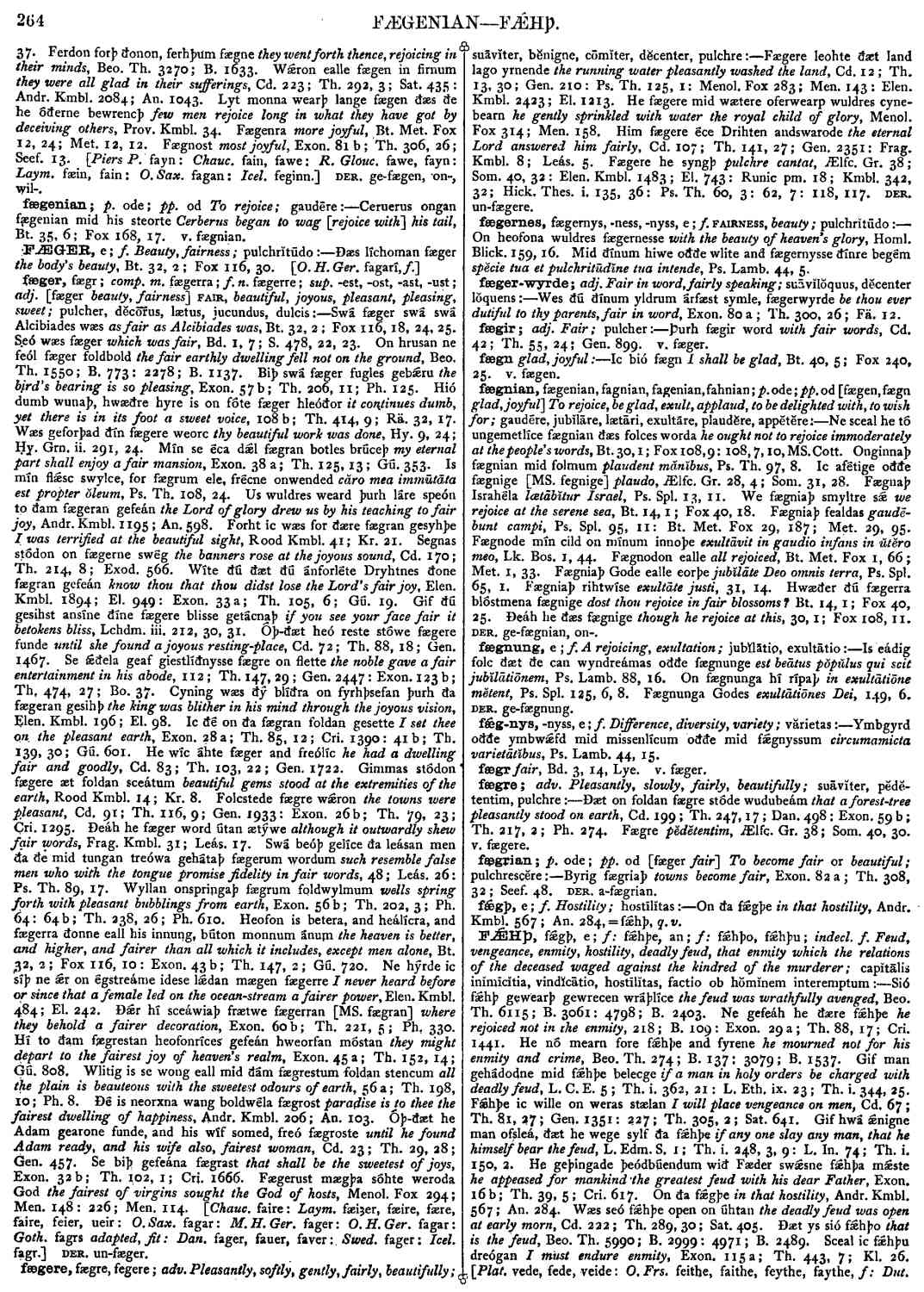FǼHÞ
- noun [ feminine ]
-
Sió fǽhþ gewearþ gewrecen wráþlíce
the feud was wrathfully avenged,
- Beo. Th. 6115 ;
- B. 3061: 4798 ;
- B. 2403 .
-
Ne gefeáh he ðære fǽhþe
he rejoiced not in the enmity,
- 218 ;
- B. 109: Exon. 29 a ;
- Th. 88, 17;
- Cri. 1441 .
-
He nó mearn fore fǽhþe and fyrene
he mourned not for his enmity and crime,
- Beo. Th. 274 ;
- B. 137: 3079 ;
- B. 1537 .
-
Gif man gehádodne mid fǽhþe belecge
if a man in holy orders be charged with deadly feud,
- L. C. E. 5 ;
- Th. i. 362, 21: L. Eth. ix. 23 ;
- Th. i. 344, 25.
-
Fǽhþe ic wille on weras stælan
I will place vengeance on men,
- Cd. 67 ;
- Th. 81, 27;
- Gen. 1351: 227 ;
- Th. 305, 2;
- Sat. 641 .
-
Gif hwá ǽnigne man ofsleá, ðæt he wege sylf ða fǽhþe
if any one slay any man, that he himself bear the feud,
- L. Edm. S. 1 ;
- Th. i. 248, 3, 9: L. In. 74 ;
- Th. i. 150, 2.
-
He geþingade þeódbúendum wið Fæder swǽsne fǽhþa mǽste
he appeased for mankind the greatest feud with his dear Father,
- Exon. 16 b ;
- Th. 39, 5;
- Cri. 617 .
-
On ða fǽgþe
in that hostility,
- Andr. Kmbl. 567 ;
- An. 284 .
-
Wæs seó fǽhþe open on úhtan
the deadly feud was open at early morn,
- Cd. 222 ;
- Th. 289, 30;
- Sat. 405 .
-
Ðæt ys sió fǽhþo
that is the feud,
- Beo. Th. 5990 ;
- B. 2999: 4971 ;
- B. 2489 .
-
Sceal ic fǽhþu dreógan
I must endure enmity,
- Exon. 115 a ;
- Th. 443, 7;
- Kl. 26 .
Bosworth, Joseph. “FǼHÞ.” In An Anglo-Saxon Dictionary Online, edited by Thomas Northcote Toller, Christ Sean, and Ondřej Tichy. Prague: Faculty of Arts, Charles University, 2014. https://bosworthtoller.com/9926.
Checked: 1